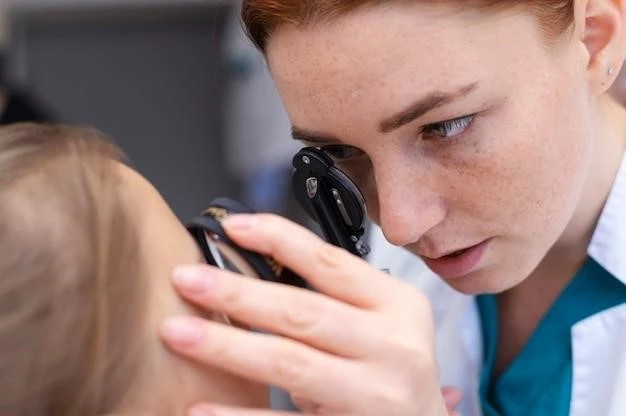Introduction
This article discusses Polysyndactyly Microcephaly Ptosis‚ a syndrome characterized by unique features affecting multiple aspects of individuals’ health.
Definition of Polysyndactyly Microcephaly Ptosis
Polysyndactyly Microcephaly Ptosis is a syndrome characterized by the unique combination of symptoms including microcephaly‚ ptosis‚ polysyndactyly‚ facial anomalies‚ and congenital heart defects. This syndrome has been associated with specific genetic mutations and inheritance patterns‚ leading to its distinct clinical presentation.

Overview of Polysyndactyly Microcephaly Ptosis
Polysyndactyly Microcephaly Ptosis is a complex syndrome encompassing a combination of unique characteristics affecting various aspects of individuals’ health.
Clinical Features of the Syndrome
Polysyndactyly Microcephaly Ptosis presents a unique set of clinical characteristics including microcephaly‚ ptosis‚ polysyndactyly‚ facial anomalies‚ and congenital heart defects. Patients also exhibit growth retardation‚ developmental delay‚ and severe dysphagia‚ contributing to the complexity of the syndrome’s clinical manifestations.
Genetic Factors and Inheritance Patterns
The Polysyndactyly Microcephaly Ptosis syndrome is underlined by specific genetic mutations with distinct inheritance patterns. These mutations contribute to the syndrome’s complex presentation and require a comprehensive understanding of the genetic mechanisms involved.
Diagnosis and Treatment
Due to the unique combination of symptoms‚ diagnosis of Polysyndactyly Microcephaly Ptosis requires a comprehensive evaluation. Treatment approaches aim to manage the diverse manifestations of the syndrome effectively.
Diagnostic Methods for Polysyndactyly Microcephaly Ptosis
Diagnosing Polysyndactyly Microcephaly Ptosis involves a comprehensive evaluation of the unique clinical features exhibited by affected individuals. Diagnostic methods may include genetic testing‚ imaging studies‚ physical examinations‚ and specialized assessments to identify the specific manifestations associated with the syndrome accurately.
Management and Therapeutic Approaches
The management of Polysyndactyly Microcephaly Ptosis involves a multidisciplinary approach to address the diverse range of clinical manifestations associated with the syndrome. Therapeutic strategies aim to provide supportive care‚ address specific symptoms such as growth retardation and dysphagia‚ and manage any associated congenital heart defects effectively. The treatment plan may include surgical interventions‚ genetic counseling‚ and ongoing monitoring to ensure optimal outcomes for individuals affected by this complex syndrome.
Case Studies and Research Findings
Studies and cases related to Polysyndactyly Microcephaly Ptosis reveal a spectrum of symptoms and genetic factors affecting affected individuals‚ necessitating in-depth clinical management and genetic analysis.
Reported Cases of Polysyndactyly Microcephaly Ptosis
Case reports have described individuals presenting with a combination of symptoms including microcephaly‚ ptosis‚ polysyndactyly‚ and congenital heart defects. These cases highlight the complexity and varied clinical manifestations of this syndrome‚ emphasizing the need for comprehensive diagnostic and management strategies tailored to each affected individual.
Recent Studies on the Syndrome
Recent research has highlighted the genetic underpinnings of Polysyndactyly Microcephaly Ptosis‚ emphasizing specific mutations associated with the syndrome’s clinical manifestations. Studies have utilized advanced sequencing techniques to identify novel genetic factors contributing to the syndrome’s complexity‚ aiding in the development of targeted diagnostic and therapeutic approaches.

Associated Conditions and Syndromes
Polysyndactyly Microcephaly Ptosis may overlap with other syndromes and disorders‚ including various polydactyly conditions and neurodevelopmental anomalies. Understanding these associations is crucial in the comprehensive management of affected individuals.
Overlap with Other Syndromes and Disorders
Polysyndactyly Microcephaly Ptosis may demonstrate associations with various conditions like other polydactyly forms‚ neurodevelopmental anomalies‚ and genetic syndromes‚ highlighting the importance of recognizing overlapping features for accurate diagnosis and management.
Common Comorbidities in Polysyndactyly Microcephaly Ptosis
Polysyndactyly Microcephaly Ptosis may be associated with other syndromes such as polydactyly‚ neurodevelopmental anomalies‚ and genetic conditions‚ emphasizing the importance of a comprehensive understanding of these interconnected conditions for effective diagnostic and management strategies.
Genetic Mechanisms and Molecular Pathways
Understanding the genetic basis of Polysyndactyly Microcephaly Ptosis involves exploring specific mutations and molecular pathways contributing to the syndrome’s complex manifestations.
Underlying Genetic Mutations in Polysyndactyly Microcephaly Ptosis
Genetic studies have identified specific homozygous mutations in genes such as KATNB1 in individuals with Polysyndactyly Microcephaly Ptosis resulting in various clinical features like microcephaly‚ lissencephaly‚ short stature‚ polysyndactyly‚ and dental abnormalities.
Exploration of Molecular Pathways Involved in the Syndrome
Research has delved into the molecular pathways of Polysyndactyly Microcephaly Ptosis‚ uncovering the impact of specific genetic mutations on the syndrome’s intricate clinical manifestations. Understanding these pathways is essential for developing targeted diagnostic and therapeutic interventions to improve outcomes for affected individuals.
Prognosis and Outlook
Research advancements in understanding the genetic basis and clinical manifestations of Polysyndactyly Microcephaly Ptosis are crucial for enhancing future prognostic strategies and improving outcomes for affected individuals.
Long-Term Prognosis for Individuals with Polysyndactyly Microcephaly Ptosis
The long-term prognosis for individuals with Polysyndactyly Microcephaly Ptosis depends on the severity of the clinical manifestations and the management strategies employed. Genetic advancements and personalized treatment approaches play a vital role in shaping the long-term outcomes and quality of life for affected individuals.
Research Advances Impacting Future Prognostic Strategies
Recent research advancements have shed light on the genetic mutations and molecular pathways associated with Polysyndactyly Microcephaly Ptosis. These findings have the potential to influence future prognostic strategies‚ enabling more targeted approaches to diagnosis‚ management‚ and treatment of individuals affected by this syndrome.
